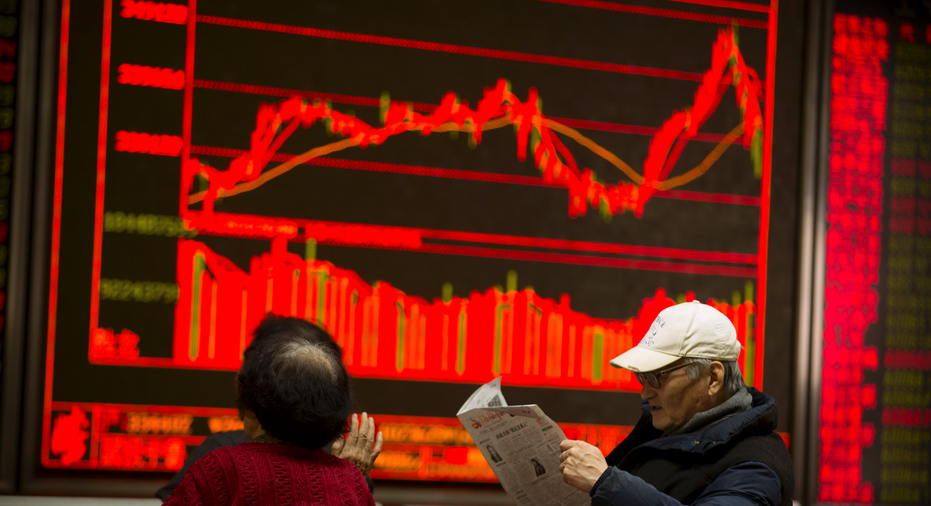Calm returns to global markets but Wall Street set to drop

LONDON – Global financial markets were a lot calmer Wednesday. However, a sense of unease lingered following this week's turmoil, with Wall Street expected to fall again.
In Europe, the main stock indexes have recovered some — but by no means all — of their losses from earlier this week following a rebound on Wall Street Tuesday. Germany's DAX was up 0.7 percent at 12,482 while the FTSE 100 index of leading British shares rose 1 percent to 7,214.
However, with Wall Street expected to post another triple-digit drop on the open, that could change. Futures markets are pointing to 0.4 percent declines on both the Dow and the S&P 500.
"While we have seen stock markets rise sharply from their lows, we are still seeing a distinct lack of confidence, with traders caught in two minds as to whether they should start piling back into equity markets, or wait for another leg lower," said Joshua Mahony, market analyst at IG.
The market mood has altered dramatically over the past few trading sessions. After one of the longest stock rallies in history, sentiment took a knock last Friday, when closely monitored U.S. jobs data showed wages growing more than anticipated — a development that could stoke inflation and prompt the Federal Reserve to raise interest rates by more than expected.
The big question is whether the stock market drop, which saw the main U.S. stock indexes on Monday post their biggest percentage falls in six and a half years, represents the start of a more protracted decline. After U.S. indexes hit record highs last month, investors are wondering whether they could suffer a so-called correction, a 10 percent drop from their peaks. The Dow entered correction territory briefly on Tuesday.
The fact that stock markets have largely recovered their poise since Monday's carnage is being viewed by some as proof that the drop was simply a healthy pullback from excessively high values.
After all, the global economy continues to grow strongly and corporate earnings are largely good. Under normal circumstances, that backdrop would see interest rates rise quickly, but in many parts of the world they are still at levels not uncommon to a recession or even a depression. That's true even in the U.S., where the Fed is gradually raising its rates.
As a result, many in the markets think the change in tone is a natural adjustment to the fact that the global economy is moving on from the global financial crisis that gripped it a decade ago.
"What is far more likely to occur going forward is a sustained pick-up in volatility, which after a prolonged absence has made a dramatic reappearance of late and this is probably a good thing," said David Cheetham, chief market analyst at XTB.
Volatility was evident Wednesday across financial markets. Asian stock markets endured another disappointing session in general, with Hong Kong's Hang Seng down 0.9 percent at 30,323.30 while Japan's Nikkei 225 stock average closed up 0.2 percent at 21,645.37.
Currency markets were steady, with the euro down 0.2 percent at $1.2349 and the dollar 0.2 percent lower at 109.36 yen. In energy markets, a barrel of benchmark U.S. crude was 0.5 percent lower at $63.05 while Brent, the international standard, fell 0.1 percent to $66.78 a barrel.



















